Turkish President Recep Tayyip Erdoğan © fbcdn.net
Despots and tyrants seldom find that everything keeps going their way without a hitch. At least, not all the time. It can be quite a tough business staying on top of the heap and it’s not a good way to win friends or influence people, either. Some leaders in history have more-or-less made it. Take Caligula, for instance, who succeeded in taking control of all the armed forces of ancient Rome. His real name was Gaius Caesar and he gained the nickname, Caligula, which means “Little Boot”, from the soldiers of his father, Germanicus Caesar. He is not remembered fondly: he reintroduced treason trials in which he demonstrated notable cruelty, including his execution of Naevius Sutorius Macro, whose support had secured him the throne. He had his army plunder Gaul with great cruelty and seems to have wanted to be seen as a god, despite his most unholy actions, having a statue of himself erected in a temple for people to worship. They didn’t and he was not popular, however. Just four years after becoming Emperor he was murdered.
Absolutism, power that nobody can challenge, has been a bit of a theme running through world history. You will recall that some leaders and their allies have argued that a monopoly of power can be justified on the basis of a presumed knowledge of absolute truth. It was the argument used by Vladimir Ilich Lenin to explain and defend the absolute rule of the Communist Party in Russia following the Bolshevik Revolution of 1917. There have been other examples of benevolent one-person (or one-party) rule. In most cases, however, it’s not proved a popular, nor even an effective form of government, albeit one that’s been hard to dislodge. Generally speaking, it hasn’t proved very benevolent, either. Which brings us to the present-day example provided by Recep Tayyip Erdoğan, ruler of Turkey. Don’t get me wrong: I like Turkey a great deal; it’s a beautiful country with lovely scenery, interesting products to offer and a lively (if sometimes rather violent) history. The capital, Istanbul, is an historic and beautiful city that is well worth seeing, if you get the opportunity. Its people (or at least those I met) are friendly and welcoming. Descended from the old Ottoman Empire, it has a long and somewhat chequered past. But on the continent of Europe, what country doesn’t?
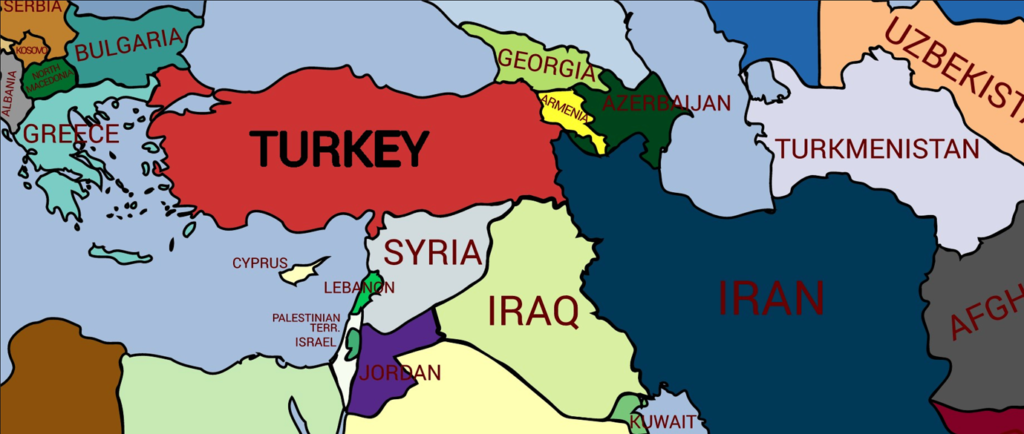
So where does that place President Erdoğan? Well, he’s the man currently in charge and determined to retain that state of affairs, but he faces a number of challenges. As tensions rose across parts of the Middle East, Turkey found itself in a difficult position, caught up in the Arab Spring and in supporting the moves towards democracy in Syria. Various uprisings put an end to the political careers of the Tunisian President, Zine al-Abidine Ben Ali and the Egyptian President, Hosni Mubarak. Turkey began supporting democratic movements, which was a hazardous position to take, especially in view of Russia’s growing interest in the region and the dangers that posed. Russia doesn’t seem to be very keen on democratic movements, apparently preferring absolute and unchallenged power.
It’s hard to imagine that President Erdoğan will ever be held in quite such high regard as a famous former president of Turkey, Kemal Atatürk. He was known as “the Father of the Turks”. Indeed, that’s what Atatürk means; his given name was Mustafa Kemal. Of course, though, the row over Donald Trump’s bizarre decision to ramp up tariffs on imported goods in the strange belief that this would benefit the American economy has tended to overshadow whatever President Erdoğan may or may not do. So far, he has tried to keep Turkey out of global conflicts and disputes, which seems sensible, but when unprovoked trade wars are in play, it becomes increasingly difficult to avoid getting caught up in them.
Inevitably, however, despite the fog of war (trade war, that is) Erdoğan is seemingly striving to stay ahead of the game. He has urged other nations to lift the sanctions on Syria in order to help restore stability in the Middle East. It would also, he pointed out, help a return to “normality”, which would in turn allow Syrians to return to their homeland. His hope for American support in his attempts to fight terrorism are hampered, however, by an American alliance with a Syrian Kurdish militia, which Turkey regards as a terrorist group.
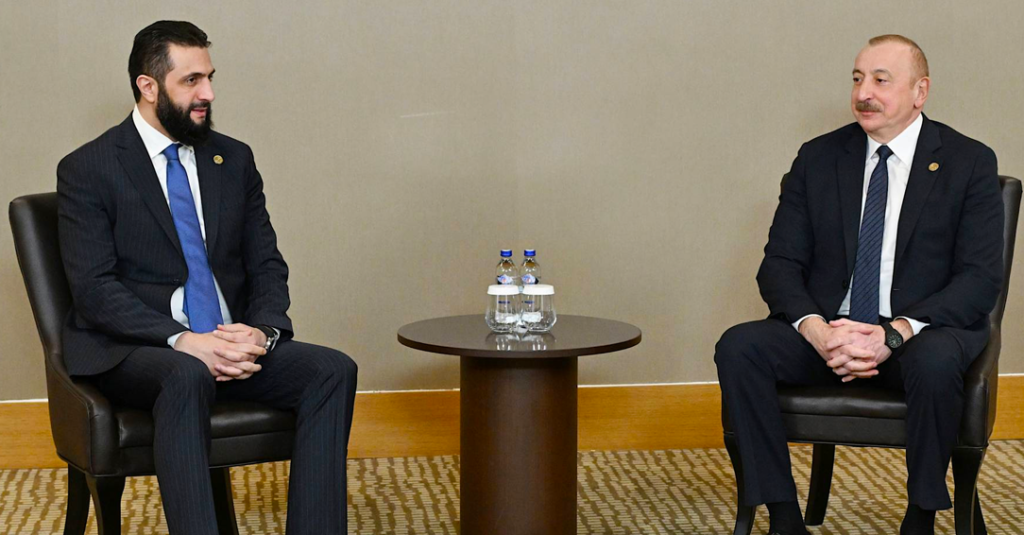
The US stance has been condemned by Turkey as a betrayal of a NATO ally, although it’s in compliance with something called CAATSA – otherwise known as the “Countering America’s Adversaries Through Sanctions Act”, which is seen as part of the US support for that militia. Erdoğan wants an end to the sanctions imposed under CAATSA so that he can complete his acquisition of F-16 Viper multirole jet fighters and further develop defence industry cooperation between the US and Turkey. Ankara was blocked from progressing with the F-35 fighter programme by its purchase of Russian S-400 defence systems, which was never likely to please Washington. Complicated picture, isn’t it? It’s easy to see both points of view but so far impossible to see a simple resolution that keeps everyone happy. Recently, almost 250 people (at the time of writing), including 60 children, have been killed by landmines and other war-related ordnance in Syria. Close to 400 people have been injured. These are the casualty figures from just the last few months since December, when the Assad regime was overthrown. In fact, casualties resulting from landmines and other explosive remnants of Syria’s internal war have dramatically increased since December. Partly, this is because more people are using roads and trackways where many of the bombs and traps are positioned, including a very large number of people who had been displaced by the war and are finally able to return home, albeit clearly not safely.
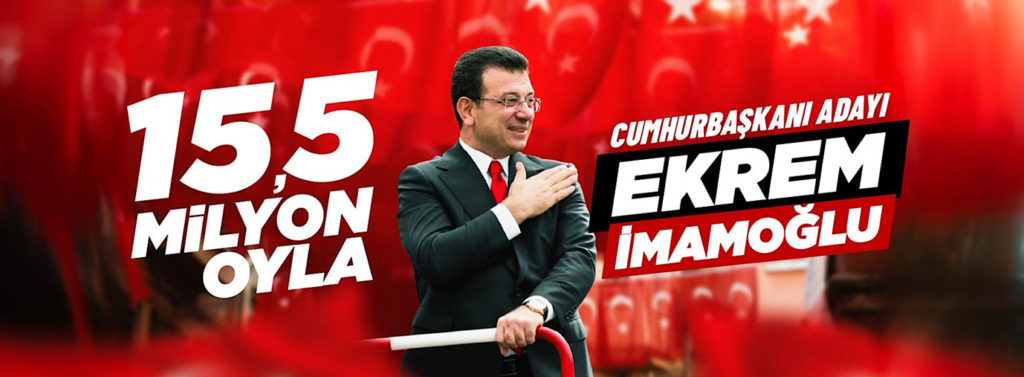
In Turkey tens of thousands of Turkish protestors have recently had to face tear gas, baton rounds and rubber bullets in the country’s worst unrest for a decade. More than 1,400 people have been arrested, too, over seven days of protests in March against Mr. Erdoğan’s rule It was all part of an angry protest over the arrest of Turkey’s main opposition leader, the Mayor of Istanbul, Ekrem Imamoglu. Journalists working in the country say they’ve never seen a crackdown like it. One possible explanation, provided to the UK’s Independent newspaper by Can Dundar, a Turkish journalist charged with treason in his home country and now living in Europe , who has few doubts about Mr. Erdoğan’s ambitions: “He wanted to be another Putin.” He told the paper, “but the country is not ready to be another Russia.” I suppose we should be relieved about that. Surely, one Russia is enough? According to Mr. Dundar, Mr. Imamoglu has defeated Mr. Erdoğan’s party four times in recent elections, which makes Mr. Erdoğan understandably nervous. What’s more, recent opinion polls suggest that Mr. Erdoğan wouldn’t win another presidential election anyway.
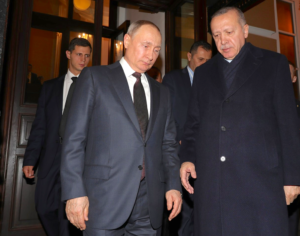
What about other world trouble spots? Well, Turkey’s views are seen as crucial in the struggle over Ukraine. President Volodymyr Zelensky believes that Mr. Erdoğan will play an important role in guaranteeing Ukraine’s independence, even if that means he won’t be “flavour-of-the-month” in Moscow. Mr. Zelensky told Arab News that Turkey has played a role in brokering “several prisoner swap deals between Russia and Ukraine which have seen hundreds of prisoners returning home despite the ongoing conflict”. Mr. Zelensky is not happy with the supposed peace talks between the US and Russia, suspecting both of not taking Ukraine’s viewpoint into account in their negotiations. In any case, Putin want President Zelensky out of the picture; he gets in the way of his military goals. Ukraine had previously won Mr. Erdoğan’s support within NATO. Mr. Erdoğan has also said that Ukraine deserves to be a member of NATO, a position that Turkey maintains, although this clearly wouldn’t go down well with President Putin. It wouldn’t please President Trump, either: US Secretary of Defence Pete Hegseth recently ruled out the possibility of Nato membership for Kyiv, calling it “unrealistic” and stating that Europe should be responsible for Ukraine’s security, presumably avoiding the need for Washington to take sides.
Perhaps we should also recall that when Zelensky met with President Erdoğan recently, US officials were meeting with their Russian counterparts in Riyadh. Kyiv and the EU were both left out of those discussions, presumably because neither President Trump nor President Putin consider them sufficiently important. According to Al Jazeera, Ukraine’s population stood at 34.7 million in 2022, when Russia’s full-scale invasion began. Since then, 6.9 million Ukrainians have left and gone abroad, 3.7 million of them were internally displaced, and 5 million remained in Russian-occupied areas, not necessarily of their own choosing, although it could be. 1.3 million Ukrainians live in Russia or in its closest ally, Belarus, according to reports by the United Nations, they’re there by choice. According to Ukrainian officials, they face jail, torture and loss of property if they make any attempt to vote. Welcome to democracy, Putin-style.
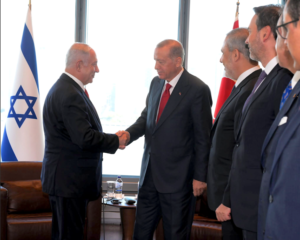
Turkey would like to buy a fleet of American F-35 5th generation fighters, which would help it to defend itself against foreign adventurism, but at present Israel stands in the way. Israeli Prime Minister Benjamin Netanyahu has been lobbying US Secretary of State Marco Rubio to block the sale, keen to retain Israel’s air superiority over Turkey, even though the two countries are not at war, nor seemingly likely to be. The fear is over Turkey’s growing influence in Syria. One might have imagined that President Netanyahu would be more concerned about Mr. Trump’s recent negotiations with Iran. Meanwhile, back in Turkey there have been increasingly violent protests throughout the country against President Erdoğan, who has in turn responded with violence of his own, often involving the use of rubber bullets. In fact, the anti-Erdogan demonstrations have been mainly fairly peaceful – so far – but that could easily change. The whole region is clearly a powder keg, and its politicians are playing with matches. President Erdogan has called the protests “evil” and accused his political opponents of turning into a “movement of violence”, as he called it. That’s presumably why his government has closed the social media sites of some 700 journalists. Other journalists have been arrested. President Erdoğan clearly feels that any political opposition to his rule is in some way criminal. Erol Onderoglu, who launched the Istanbul office of Reporters Without Borders in 1996 has claimed that the current state of press freedom in Turkey is worse than it was under military rule. He has claimed that the arrest of so many journalists is intended as a warning to the public at large. Meanwhile, the articles the reporters write are coming under increasingly close supervision by the Turkish authorities.
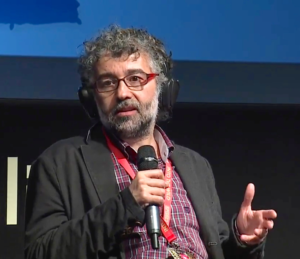
Relations between Russia and Turkey, which were virtually non-existent in Soviet times, have improved, with some Russians choosing to holiday in Turkey. However, the two countries certainly don’t agree on foreign policy. They have strongly opposing views, for instance, on the Syrian civil war and the conflict in Kosovo, as well as on the genocides in Armenia and Bosnia. So, what about Russia’s war in Ukraine? Certainly, Turkey has views but they may not be what you would expect. The Turkish government argues that Russia is clearly at war, in which case it has the right under the 1936 Montreux Convention to close to any warships the Bosporus Strait, which leads into the Black Sea. That means warships of any nation, I should point out, but the measure is clearly aimed at the Russian navy, in case Moscow seeks to reinforce the firepower it already has in place there. Turkey’s decision is, at least, an important if purely symbolic one in support of Ukraine. However, Turkey voted for a UN General Assembly resolution condemning Russia, although it has not imposed sanctions on Russia, nor closed its airspace to Russian aircraft. On the issue of Ukraine, Turkey tries to pretend a neutral stance, but it’s fairly obviously more sympathetic towards Russia’s position. Indeed, it’s clear that Turkey’s interests and those of Russia are relatively close. But there again, perhaps that shouldn’t come as a surprise, considering how closely aligned are the interests of Presidents Donald Trump and Vladimir Putin.
One thing of which we should be aware from the outset is Russia’s love of complex plots. Igor Sechin, President Putin’s “gatekeeper” is a former KGB operative from St. Petersburg who rose to become deputy head of the Kremlin and to gain a reputation as “Russia‘s Darth Vader”, so notorious did he become for convoluted plotting. It’s not the sort of nickname many would cherish, but Mr. Sechin is the Chief Executive Officer, Chairman of the Management Board, and Deputy Chair of the Board of Directors of Rosneft, the largest oil company in Russia.
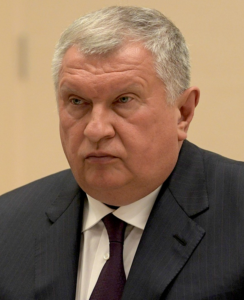
Not surprisingly, he’s very rich. According to a disputed article on Forbes List, strongly denied by the man himself, he possesses $800-million (€725-million) and two super-yachts, although this claim was withdrawn after a Moscow court ruled it to be untrue and defamatory. So it would seem that he’s probably not as wealthy as Forbes reported. Even so, he’s not exactly hard-up, either. Then there’s Nikolai Patrushev, the powerful former head of the FSB (Federal Security Service), the successor-agency to the KGB, and currently the Chief of the Security Council. President Putin is well-served by like-thinking and clever officials, the so-called Siloviki, or “inner circle”. Don’t ever underestimate Russia or the Russians: Vladimir Putin is a clever man who has surrounded himself with other clever men. Sergei Tretyakov, a former colonel in Russian Foreign Intelligence (the SVR), has warned the West that Russia is certainly not its friend and is just as determined as the KGB ever was to destroy the United States. It’s better-equipped to achieve that ambition, too. And here’s another thing: I’ve seen a lot of photographs of Putin but in hardly any of them is he smiling, not even in the pictures of him with his wife, Lyudmilla and his second daughter, Katerina, or Katya, born in 1986 while he was stationed in Dresden.
I’m not trying to suggest he’s a cheerless man. He’s probably the life and soul of any party, given the chance. He just doesn’t show it. President Erdoğan told him that cooperation between their two countries is an essential factor in resolving regional conflicts. This may well be true, but such discussions normally involve one of the participants accepting that the other party also holds a valid point of view. In the case of President Putin, that could be difficult. Even so, the two men spoke together in late March about various topics, including security in the Black Sea and President Erdoğan’s pledge to try his best to ensure the safety of commercial navigation there.
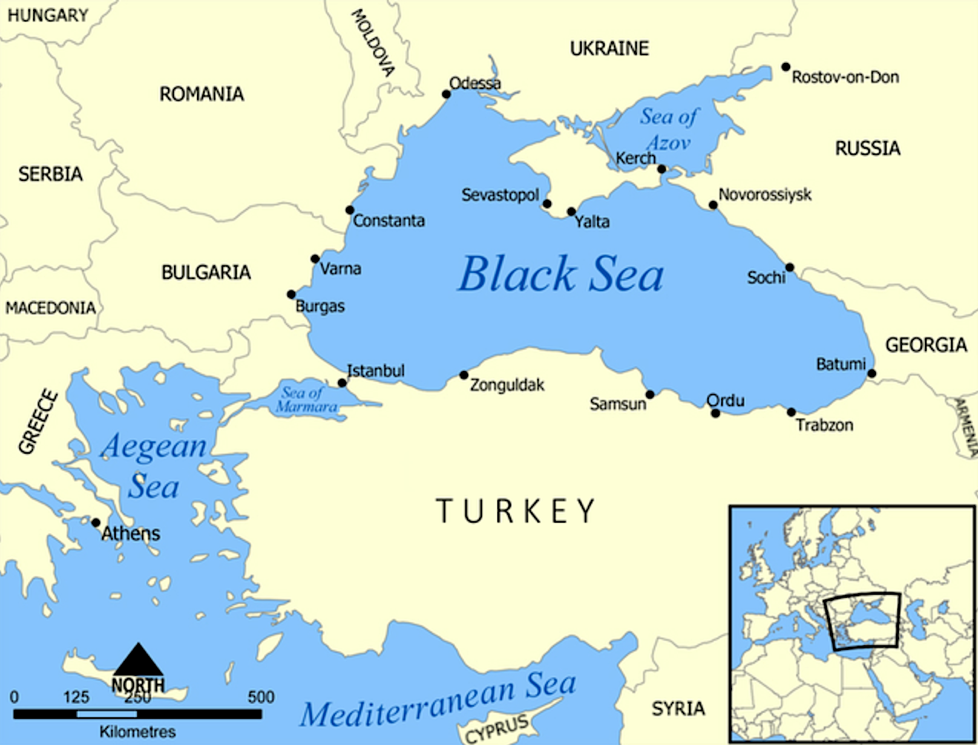
According to the Kremlin, the discussion also touched on what it referred to as “the resumption of the Black Sea initiative for safe navigation and the removal of obstacles to the export of Russian food and fertilizers”, an initiative first brokered in 2022 by Turkey and the United Nations. Don’t cheer just yet; although it was supposed to guarantee the safe transportation of Ukrainian agricultural produce through the Black Sea, Moscow withdrew from the deal the very next year, accusing the West of failing to fulfil its promise to lift sanctions while also hampering Russia’s own exports of agricultural products and fertilizers.
It would seem that both the White House and the Kremlin have been courting President Erdoğan. President Trump’s own “special envoy”, Steve Witkoff, said in an interview recently that “there’s a lot of good, positive news coming out of Turkey”, even as increasingly violent protests spread across the country. That would explain Washington’s decision to sell Istanbul those F-35 jets. He didn’t comment on Turkey’s arrest of the leading opposition politician, Ekrem Imamoglu, which led to more demonstrations by his supporters. At the time of writing, more than 1,800 people, including ten or more journalists, have been arrested, and the demonstrations continue. The protestors face tear gas, water canon and rubber bullets but seem undeterred. Mr. Erdoğan has pointed out that the demonstrations have seen injuries, leading him to declare that “our country will not give in to street terror”.
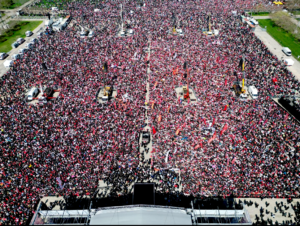
It’s clear that he enjoys the support of President Trump, who has described Mr. Erdoğan as “a good leader”. Widespread fear of Russia in Europe prevents too much criticism of Mr. Erdoğan’s leadership skills. Turkey’s economy is not looking very healthy, either, although the government hopes that the opposition Republican People’s Party can be placated by allowing it to retain control of Istanbul, as it desires. Taking control of Turkey from President Erdoğan looks increasingly difficult. As The Economist magazine reports it, his party has begun to look more and more like a regime, rather than a democratic government. Türkiye’s main opposition leader Ozgur Ozel told European Parliament that with Donald Trump posing a threat to Europe, this is not a good time to ignore Turkey, which has the second largest army in NATO. But the people of Turkey are getting increasingly angry with Mr. Erdogan and his government. They may not stick for long to mere demonstrations in defence of their views. Not all the other countries like Mr. Erdogan enough to defend him.
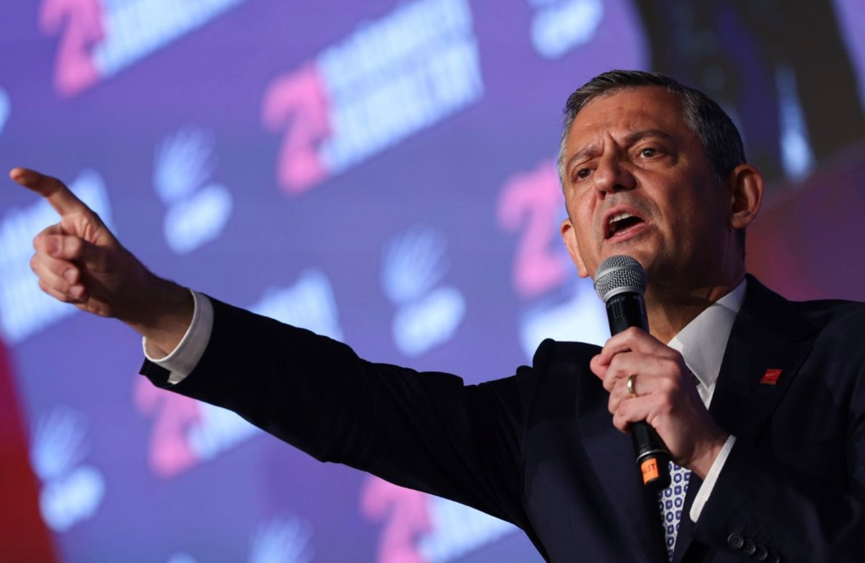
A question mark also hangs over Russia’s support. After all, Turkey has been arming and supporting Ukraine, which must be humiliating for President Putin. Turkey has also been instrumental in securing the release of Ukrainian leaders held by Moscow, which, incidentally, refers to them as “Nazis”. However, the mess that Russia has made of its war with Ukraine can only strengthen Turkey’s position. President Putin, it seems, needs Mr. Erdoğan, despite the fact that Turkey has been supplying Kyiv with combat drones, rocket systems and armoured vehicles, among other things, which a Turkish defence company, Baykar, has said it plans to build a drone factory in Ukraine. Friendship, it seems, is a slippery business. Whether or not that is to the long-term advantage of Mr. Erdoğan remains to be seen, as does the continued friendship of Mr. Putin.
T.Kingsley.Brooks@europe-diplomatic.eu

